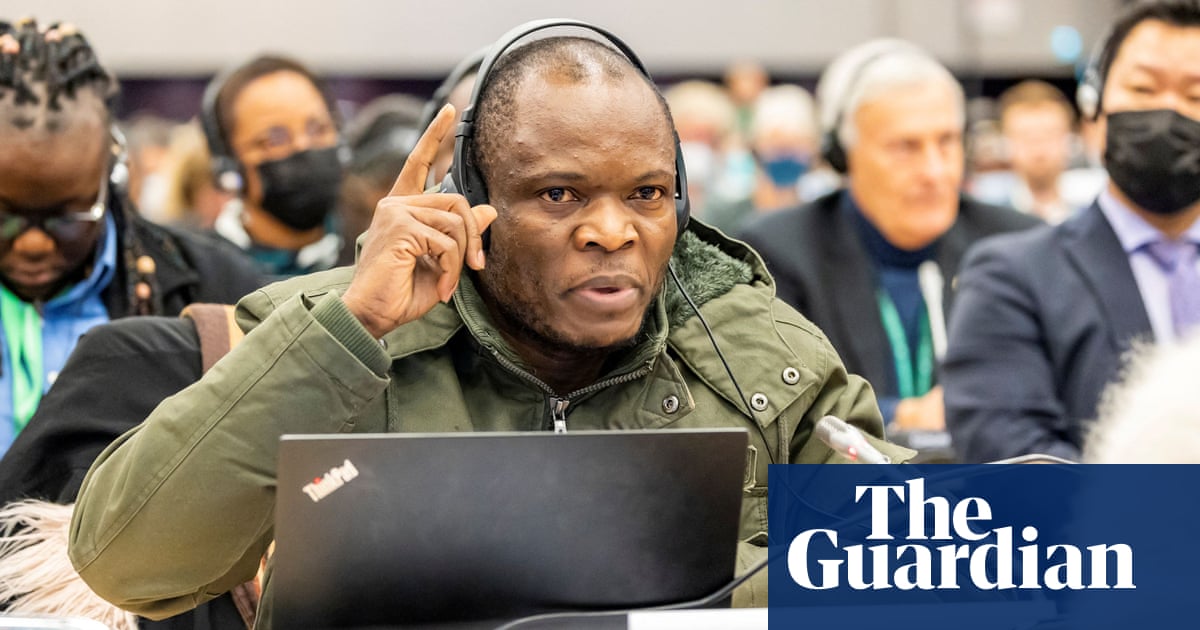
It was almost a special moment in the early hours of Monday morning in the Palais des congrès in Montreal. China and Canada, two squabbling adversaries, had united for the good of the planet to help the world at Cop15 forge a once-in-a-decade deal to halt the destruction of Earth’s ecosystems.
From the emphasis on indigenous rights to conserving 30% of Earth for nature, there is good reason to believe the Kunming-Montreal agreement could be a truly historic, hopeful turning point in humanity’s relationship with nature after decades of destruction and warnings of mass extinctions.
“For us, it’s like a change of paradigm,” said Viviana Figueroa, a representative of the International Indigenous Forum on Biodiversity (IIFB). “They are recognising this important role that was invisible.” “A historic deal”, Christophe Béchu, France’s minister for ecological transition said of the agreement, billed by some as nature’s “Paris moment”, referring to the climate deal made in Paris in 2015.
But a last-minute objection by the Democratic Republic of the Congo, which appears to have been dismissed on a legal technicality by Huang Runqiu, China’s environment minister and the Cop15 president, has left some with a bad taste in their mouth and others fearing some nature-rich states will not take implementation seriously.
The DRC negotiator clearly said that his country did not support adopting the text. But he did not use the right wording to express it formally, which is why the final agreement is said to be legally acceptable.
The world has never met a target it set for itself on nature. Cop15 was supposed to be different, with an emphasis on making sure countries follow through.
Ève Bazaiba, the DRC environment minister, said that her country does not recognise the agreement and will complain to the UN secretary general about how her country’s objections were handled in the plenary.
“We didn’t sign the agreement. It is not possible for us to implement it. We cannot accept the level of ambition without more finance,” she said.
The DRC may be one of the poorest countries in the world but in terms of biodiversity, it is a superpower. It is home to the largest chunk of the world’s second-largest rainforest, the Congo basin rainforest, the only one that sucks in more carbon than it releases. The mountain gorillas of Virunga are world famous – the subject of numerous documentaries.
Despite the DRC government’s claims that it is committed to protecting its wildlife, it is pursuing oil and gas exploration in these vital ecosystems – including Virunga, making its objections hypocritical in the eyes of many.
Up to the final plenary, Canada’s Steven Guilbeault, a former environmental campaigner turned minister, and Runqiu had worked together behind the scenes to corral countries into agreement – an unlikely partnership between a liberal democracy and an authoritarian dictatorship with China’s president, Xi Jinping, and Canada’s prime minister, Justin Trudeau, facing off at the G20 just a month ago.
In the early hours of Monday morning, the DRC was a last-minute holdout on the creation of a new biodiversity fund, which it said it needed to pay for conservation and alternative livelihoods. Many say this is a disingenuous negotiating tactic, designed to get as much money as possible from the global north.
But for the bigger picture on protecting key ecosystems, it spells trouble for implementation of the Kunming-Montreal agreement just hours after it appeared to be agreed.
The summit in Montreal was about making sure do-not-destroy ecosystems – the crucial for the climate and for wildlife – survive the century, for humanity’s own sake.
And the spectacle of a biodiversity superpower such as the DRC having its position dismissed in the final minutes of Cop15 by a Chinese president rushing a text through has been interpreted by some African and Latin American states – whether justifiably or not – as evidence their opinions do not matter.
Urgent political triage is needed to make sure the Kunming-Montreal agreement holds. Earth cannot afford another decade of failure and destruction.


